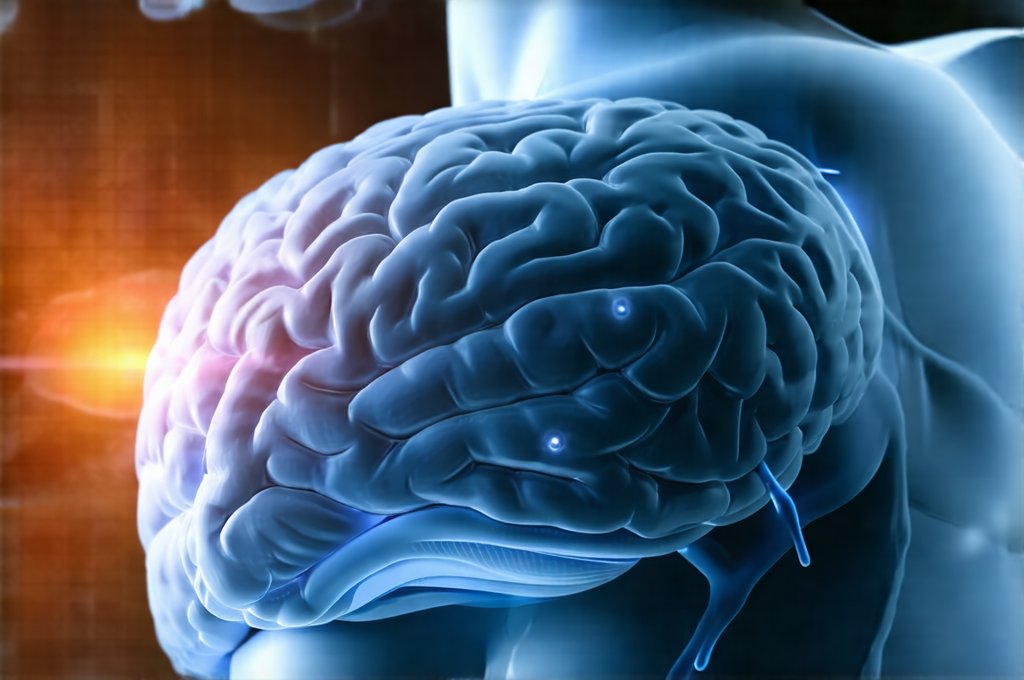Acid reflux, formally known as gastroesophageal reflux disease (GERD), is a surprisingly common condition impacting millions globally. It occurs when stomach acid frequently flows back up into the esophagus – the tube connecting your mouth to your stomach. This backwash can cause heartburn, a burning sensation in the chest, but its effects don’t always stop there. Many individuals report experiencing seemingly unrelated symptoms alongside typical reflux complaints, leading to questions about how interconnected these issues truly are. One particularly perplexing symptom reported by some is dizziness or lightheadedness, prompting a search for understanding: could acid reflux actually cause these sensations?
The relationship between acid reflux and dizziness isn’t always straightforward, making it difficult to pinpoint as a direct cause-and-effect scenario in many cases. While heartburn is the hallmark symptom of GERD, the underlying mechanisms and potential complications can extend beyond the esophagus, potentially influencing other bodily systems. Understanding this connection requires delving into the physiological processes involved and considering various contributing factors. It’s important to remember that dizziness is a broad symptom with numerous possible causes, so identifying reflux as the culprit necessitates careful evaluation and often, medical consultation to rule out other conditions. This article will explore the potential links between acid reflux and dizziness or lightheadedness, examining how they might be related and what steps can be taken to address these concerns.
The Physiological Link Between Reflux and Dizziness
The connection between acid reflux and dizziness isn’t always obvious because it often stems from indirect mechanisms rather than a direct physiological effect of stomach acid on the inner ear or brain. Several pathways could explain this relationship, primarily involving vagal nerve stimulation and esophageal spasms. – The vagal nerve is a cranial nerve that plays a crucial role in regulating various bodily functions, including digestion, heart rate, and blood pressure. Acid reflux can irritate the esophagus, triggering the vagal nerve which, in turn, may lead to fluctuations in heart rate or blood pressure; these changes can then manifest as dizziness or lightheadedness. – Esophageal spasms – involuntary contractions of the esophageal muscles – are sometimes associated with GERD. These spasms can be intense and painful, potentially impacting nearby nerves and triggering a similar vagal response resulting in dizziness.
Furthermore, chronic acid reflux can lead to nutritional deficiencies due to malabsorption or dietary restrictions aimed at managing symptoms. Deficiencies in vitamins like B12 or iron, for instance, are known to cause dizziness and fatigue. While not directly caused by the acid itself, the long-term impact of untreated GERD on nutrient absorption could contribute to these sensations. It’s also important to note that some medications used to treat acid reflux – such as proton pump inhibitors (PPIs) – can have side effects that include dizziness, although this is less common and usually temporary. Finally, consider the anxiety component often associated with chronic health conditions like GERD. Constant worry about experiencing heartburn or other symptoms can lead to hyperventilation or muscle tension, both of which can induce dizziness. This psychological factor shouldn’t be underestimated as it plays a significant role in many reported cases. It’s a complex interplay between physical and emotional factors that contribute to the experience of dizziness related to acid reflux. Understanding how [can fermented foods cause brain fog] may also impact your health is important when considering overall wellness.
Secondary Effects & Complications Contributing to Dizziness
Beyond the direct physiological mechanisms, several secondary effects and potential complications arising from chronic acid reflux can contribute to dizziness or lightheadedness. One important factor is dehydration. Individuals with GERD often restrict fluid intake to minimize heartburn symptoms, leading to inadequate hydration levels. Dehydration can significantly lower blood volume, reducing blood flow to the brain and causing dizziness. Additionally, persistent inflammation caused by chronic acid exposure can affect various bodily systems, potentially impacting inner ear function and balance.
Another complication is the potential for Laryngopharyngeal Reflux (LPR), a “silent reflux” where stomach acid reaches the larynx (voice box) and throat without necessarily causing classic heartburn symptoms. This can irritate the nerves in the throat and even impact respiratory control, potentially leading to dizziness or feelings of suffocation. The chronic inflammation associated with both GERD and LPR can also disrupt sleep patterns, contributing to fatigue and exacerbating dizziness. It is vital to identify these secondary effects as they may be a significant source of discomfort and contribute to the overall experience of dizziness. Considering [can natural sugar cause digestive issues] could help you manage your diet.
Chronic acid reflux isn’t simply about heartburn; it’s a systemic issue that can have far-reaching consequences if left unmanaged. Recognizing these complications helps in understanding why individuals might experience seemingly unrelated symptoms like dizziness alongside their primary GERD complaints. When managing chronic conditions, it is helpful to know [can music or light affect gut symptoms].
Identifying Other Potential Causes of Dizziness
Before attributing dizziness solely to acid reflux, it’s crucial to rule out other potential causes. Dizziness is a symptom with an exceptionally broad differential diagnosis – meaning there are many possibilities to consider. – Inner ear problems: Conditions like Benign Paroxysmal Positional Vertigo (BPPV), Meniere’s disease, and vestibular neuritis can all cause dizziness. – Cardiovascular issues: Low blood pressure, irregular heartbeat (arrhythmia), and heart failure can lead to lightheadedness or fainting spells. – Neurological conditions: Migraines, multiple sclerosis, and stroke are more serious causes of dizziness that require immediate medical attention.
- Medication side effects: Many medications, including those for high blood pressure, anxiety, and depression, can have dizziness as a side effect. – Anemia: Iron deficiency anemia is a common cause of fatigue and dizziness. – Dehydration: As mentioned earlier, insufficient fluid intake can lead to lightheadedness. A thorough medical evaluation by a healthcare professional is essential to determine the underlying cause of dizziness. This typically involves a detailed medical history, physical examination, and potentially diagnostic tests like blood work, an audiogram (hearing test), or imaging scans. Don’t self-diagnose; accurate diagnosis is key for effective treatment. It’s also important to understand if [can acid reflux be linked to food sensitivity] plays a role in your symptoms.
When To Seek Medical Attention
While occasional, mild dizziness associated with acid reflux might not be cause for immediate concern, certain signs warrant prompt medical attention. – Severe or persistent dizziness: If the dizziness is intense, doesn’t improve with time, or interferes with daily activities, seek medical advice. – Accompanying symptoms: Dizziness accompanied by chest pain, shortness of breath, blurred vision, weakness on one side of the body, difficulty speaking, or loss of consciousness requires immediate emergency care. – Worsening GERD symptoms: If your acid reflux is worsening despite treatment, it could indicate a more serious underlying problem.
- New or unexplained dizziness: Dizziness that appears suddenly without any clear trigger should be evaluated by a healthcare professional. It’s important to remember that while acid reflux can contribute to dizziness in some cases, it’s rarely the sole cause. A comprehensive medical evaluation is necessary to identify all potential contributing factors and develop an appropriate treatment plan. Don’t hesitate to consult your doctor if you are experiencing persistent or concerning symptoms. Exploring [can gut imbalance cause sugar cravings] may also provide helpful insights.
Managing Acid Reflux & Potentially Reducing Dizziness
If a healthcare professional determines that acid reflux may be contributing to your dizziness, several strategies can help manage the condition and potentially alleviate symptoms. – Lifestyle Modifications: These are often the first line of defense in managing GERD. This includes elevating the head of your bed, avoiding trigger foods (e.g., spicy foods, caffeine, alcohol, fatty foods), eating smaller, more frequent meals, losing weight if overweight, and quitting smoking. – Dietary Changes: Identifying and eliminating foods that exacerbate reflux symptoms can significantly reduce discomfort. Keeping a food diary to track what you eat and how it affects your symptoms is helpful.
- Over-the-counter Medications: Antacids can provide temporary relief from heartburn, while H2 blockers and PPIs can help reduce acid production. However, long-term use of these medications should be discussed with your doctor. – Prescription Medications: In more severe cases, a doctor may prescribe stronger medications to control acid reflux. – Staying Hydrated: Maintaining adequate hydration levels is crucial for overall health and can help prevent dizziness associated with dehydration. Remember that managing acid reflux effectively doesn’t guarantee the elimination of dizziness, but it can significantly reduce its frequency and severity. A collaborative approach with your healthcare provider is essential to develop a personalized treatment plan tailored to your specific needs. If you are experiencing ear discomfort, remember [can acid reflux cause ear pain or pressure]. And if you’re considering dietary changes, [can low acid diets help with food intolerance] may be worth exploring.


















